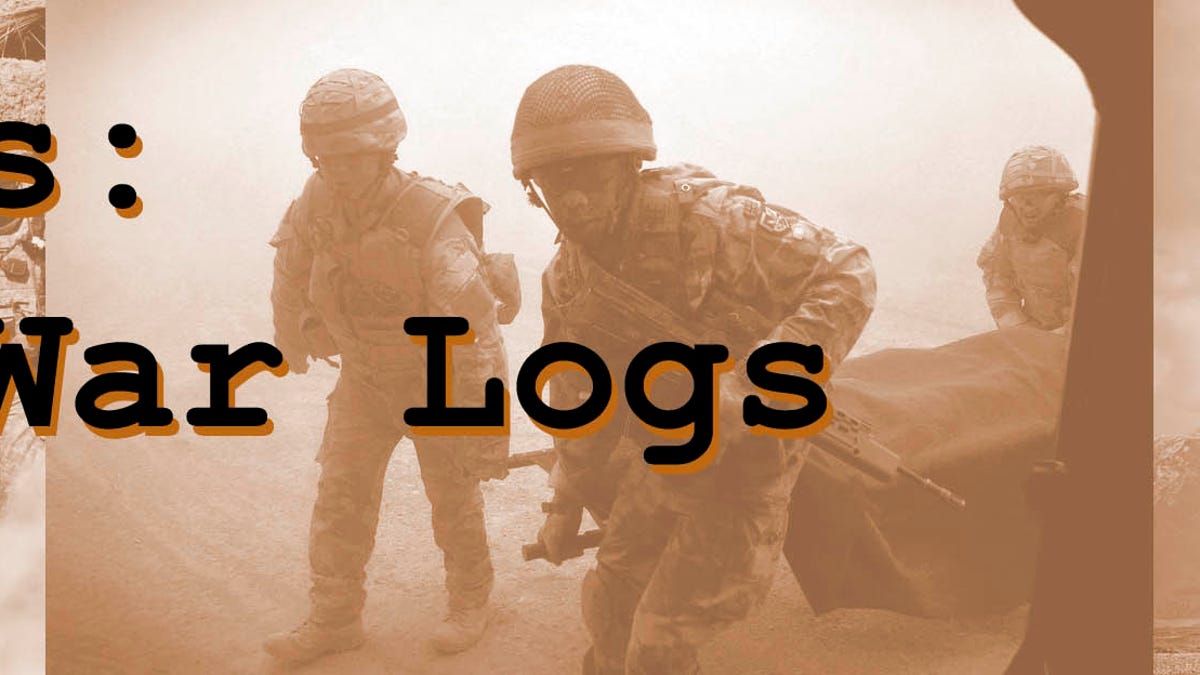Wikileaks' war files disclosure roils Washington
Political circles respond angrily to the disclosure of thousands of confidential military reports from Afghanistan, and the Pentagon says an investigation is under way.

During the last 24 hours or so, official Washington has erupted with volcanic denunciations of Wikileaks, the document-sharing group that released about 75,000 military reports regarding the war in Afghanistan on Sunday.
White House spokesman Robert Gibbs called it "alarming" to find so many "top secret documents" publicly available on the Web. (See transcript.)
National security adviser James Jones "strongly" condemned the release in a statement that was reprinted on the U.S. Embassy Web sites for Afghanistan and Turkey.
Over at the Pentagon, spokesman Col. Dave Lapan said it could take weeks to evaluate the information that was released. Uncompressed, the files total about 100 megabytes, which is about 20 times the size of the complete works of William Shakespeare.
"The leaking of classified information is something we take very seriously," Lapan told reporters on Monday, saying that the Pentagon is trying to narrow down the source of the leak. It will probably surprise few people to learn that the investigation is underway.
At Monday's State Department briefing, the questions related to little but Wikileaks. Philip Crowley, assistant secretary for public affairs, merely stated the obvious when announcing that there is an ongoing criminal investigation, without providing many details. (See transcript.)
But this cadre of newly minted Wikileaks critics has been forced to tread a careful path: claiming that the massive disclosure of unit-level military reports was important enough to "harm" national security, while simultaneously insisting that the reports were uninteresting.
"In terms of broad revelations, there aren't any that we see in these documents," said Gibbs, the White House spokesman. " I don't see broad new revelations that we weren't either concerned about and working through (at) this time a week ago."
A spokesman for Pakistani President Asif Ali Zardari told Bloomberg that "there is nothing much in this."
We'll see. The full impact of the files may not become apparent for days, or even months, as researchers, journalists, or anyone with an Internet connection and a modicum of curiosity takes the opportunity to pore over the data.
Much of the White House's ire seems to be directed at the co-founder of Wikileaks, Julian Assange, who has intentionally remained far away from U.S. jurisdiction in the last few months.
Obama aides e-mailed transcripts of an interview that German's Der Spiegel conducted with Assange, in which he said: "I enjoy creating systems on a grand scale, and I enjoy helping people who are vulnerable. And I enjoy crushing bastards. So it is enjoyable work." (For his part, Assange says the released documents contain evidence of war crimes.)
That Wikileaks has a political agenda beyond mere openness is no secret. Wikileaks contributor Jacob Appelbaum, who left the country immediately after speaking at a hacker conference in New York City a week ago, told the attendees that they were personally responsible for the decimation of Afghanistan: "(You) funded every bullet that has shot a child and every woman who has to come home to a family who has been decimated by troops, where there is no justice."
One reason the Wikileaks principals may not be in a hurry to return to the United States is that the Espionage Act makes it a federal crime for anyone with unauthorized possession of "information relating to the national defense" to share it with anyone else.
The Obama administration has called the disclosure a "breach of federal law." And Missouri Sen. Kit Bond, ranking Republican on the Senate Intelligence Committee, has said that "somebody ought to be wearing an orange jumpsuit."
On the other hand, the Espionage Act's sweeping prohibition would apply to many newspapers and magazine reporters as well who published leaked information, and the U.S. Justice Department may not want to risk a First Amendment challenge to its scope.
Meanwhile, Wikileaks has been attracting nothing but condemnation from pro-war types on Capitol Hill, where a $33 billion war funding bill for Afghanistan was scheduled to be finalized this week.
The disclosure is "deeply troubling and a serious breach of national security," warned Sen. John McCain, an Arizona Republican. "The source of this harmful leak within the U.S. government should face the full penalties of the law."
Sen. Joe Lieberman, a Connecticut independent who caucuses with Democrats and is one of the more reliable hawks on Capitol Hill, served up a blistering denunciation. "The disclosure of tens of thousands of classified documents on the Afghanistan war is profoundly irresponsible and harmful to our national security," Lieberman said. What's more, he said, Wikileaks has an "ideological agenda that is implacably hostile to our military and the most basic requirements of our national security."
Rep. Ike Skelton, the Democratic chairman of the House Armed Services Committee, said that: "Our nation's secrets are classified for a reason, and the release of classified documents could put our national security--and the lives of our men and women in combat--at serious risk."
Note the word "could" in Skelton's warning, and in most of the rest of the complaints from Washington officialdom, McCain and Lieberman notwithstanding. Gibbs, the White House spokesman, hedged his bets by saying the leak "has the potential to be very harmful to those that are in our military" and "could potentially put a group or an individual at great personal risk."
And in fact, NBC News reported that David Lapan, deputy assistant secretary of defense for media operations, said that a preliminary review by a Pentagon team has so far not identified any documents whose release could damage national security. What's more, Lapan said, none of the documents are classified above "secret" (no "top secret" reports, for instance).
Overclassification is not a new problem, of course, but if supposedly "secret" information can be published without damaging national security, it becomes difficult to claim it really needed to be secret in the first place.

